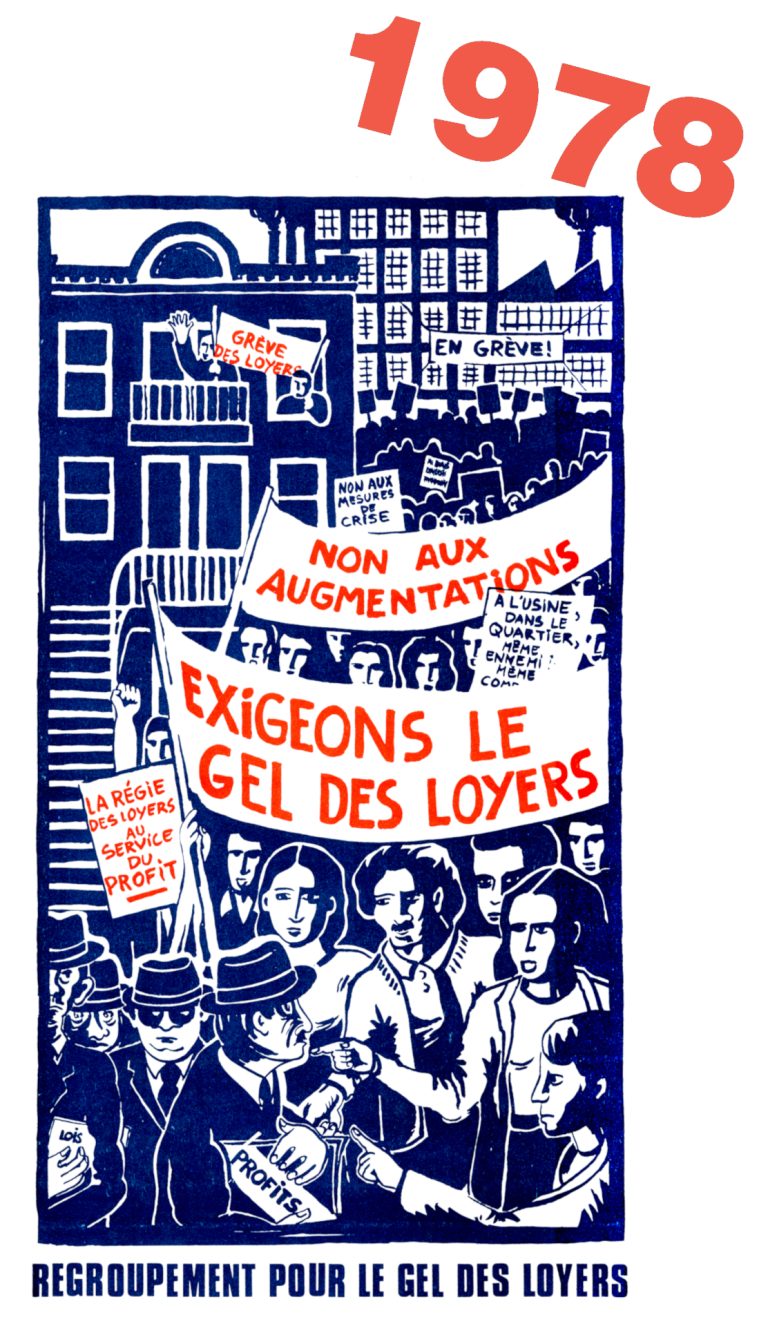In 1978, housing committees decided to form a province-wide organization to build a better balance of power with the Quebec government on the housing issue. The Coalition's very first campaign called for a freeze on rents in a context where increases averaged nearly 10% per year. Since then, the Coalition of Housing Committees and Tenants Associations of Quebec (RCLALQ) has made the collective defense of tenants' rights its priority in the struggle, in a society where access and conditions for housing are too often subject to the whims of the rental market.
We invite you to consult our book 40 ans de luttes du RCLALQ pour le droit au logement (in French only) to find out more about our history. You can also consult below the RCLALQ’s highlights since its creation in 1978.
1978 - Coalition for Rent Freezes

1980 - Discrimination and Tenant Blacklists
1982 - Let’s Refuse Rent Increases
Poster by Bernard Vallée. Many RCLALQ members are partial to this beautiful poster. In fact it was used once more for an action on rent control in winter 2017.
1984 - Pass Me Your Lease
between tenants, the “Pass me your lease!” campaign was created to encourage tenants who leave their dwelling to give a copy of their lease to the new arrivals. With this information in hand, tenants can more easily contest an unlawful increase with the Régie du Logement.
Throughout its history, the RCLALQ has produced several posters and leaflets for the “Pass Me Your Lease!” campaign.
1984 - The Artère Magazine
1986 - “Save Our Homes” Coalition
Unfortunately, this campaign remains as relevant as ever. In the central areas of large cities, a lot of rental housing is in danger. In search of greater profits, landlords transform homes into condos, renovate them to rent them at a higher price or, increasingly, rent them on Airbnb. As a means to an end, tenants are evicted from their dwellings. The social consequences of these evictions are major, but the political authorities prefer to look the other way …
1987 - “Tenants, You Own the Streets”
Here is the poster inviting tenants to join the protest.
1990 - The Milk Carton and Rent Control
For a Housing Policy in Quebec
1992 - Régie du Logement: An Autopsy of Fraud
1992 - You Have the Right to Refuse a Rent Increase!
1994 - The Law on the Protection of Personal Information and the New Civil Code
1996 - Law 120: A Single, Mandatory Lease
1997 - Guilty of Being Poor in a Rich Society
1999 - Unseizable Welfare Cheques in Cases of Non-Payment of Rent
2000 - The Search for Housing: A Real Obstacle Course!
2002 - Protest Against the Demolition of 16 Rental Units
It comes as no surprise that these kinds of eviction tactics are still commonly used to get rid of tenants and thus increase profits. Without the intervention of tenant rights, landlords do as they please.